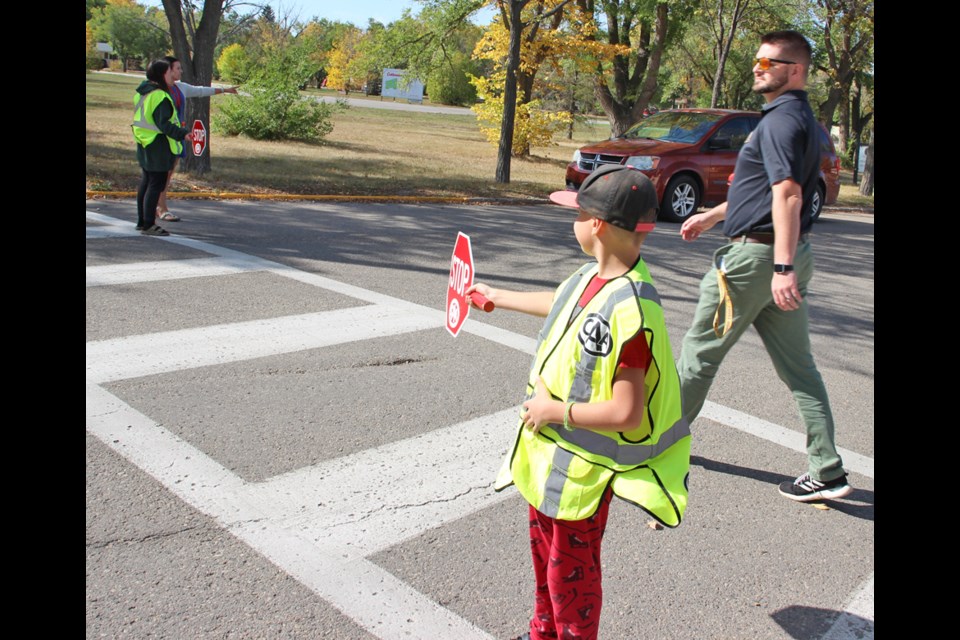A new school year is upon us and soon school zones will be busy. It is an exciting time for students but unfortunately, congested school zones can be dangerous.
According to the latest CAA survey, speeding and distracted driving are the top two hazardous behaviours performed by motorists. The report also points out, students often jaywalk and fail to look both ways before crossing the street. So, before that first school bell rings, let’s look at how we can make school zones safe for everyone.
Motorists
Stay alert and obey traffic laws. Do not drive distracted and avoid texting, eating, and drinking while driving. School zones are designed as safe areas for children travelling to and from school each day. You can do your part to help keep students safe by knowing the signs and rules for driving in school zones.
Eight common school zone traffic signs
- No Stopping: You cannot stop your vehicle.
- No Parking: You can stop but you cannot park or leave your vehicle.
- Disability Parking: A permit is needed to stop or park here. It is not a drop off or pick up area.
- School Zone: Be alert and pay attention around schools. Reduce your speed.
- Playground Zone: Be alert and pay attention near playgrounds. Reduce your speed.
- U-turns: Making a U-turn is illegal in most Saskatchewan school zones.
- School Bus Zone No Stopping: This area is for busses to load and unload students. You cannot stop here.
- School Bus Zone No Parking: This area is for busses to load and unload students. You can not park here.
Learn more:
Students and Parents
You have an important role to play when it comes to safety in school zones. Parents remember you are role models. Start the school year off right by being prepared.
Five CAA school zone safety reminders
- Be Ready – Do as much as you can the night before (prepare backpacks and pack lunches), so you feel organized and have more time in the morning.
- Make a Plan – Decide the route you will take to and from school (What streets will you travel, what landmarks are nearby, and who will you travel with). Consider carpooling or parking a block away then walk with your child to ease drop-off and pick-up traffic.
- Be Alert – STOP, THINK, LOOK, and LISTEN before crossing streets and watch for approaching vehicles. Make eye contact with drivers before you cross the street to ensure they see you.
- Know the Rules of the Road – Use designated drop-off zones (ask your school administration) and obey speed limits and other school zone signs.
- Learn Crosswalk Safety Rules – Always use crosswalks to cross the street – never jaywalk. Dismount and walk bikes and scooters across the street.
Watch for CAA School Safety Patrollers!
CAA Saskatchewan has owned and managed the CAA School Safety Patrol program since 1951. The job of a CAA School Safety Patroller is to help students cross the street safely. Student volunteers in grades 4 to 8 learn valuable life skills such as leadership, confidence, and time management.
Patrollers carry a stop paddle and wear a bright neon vest to be easily identified. By working with local law enforcement and a school coordinator, students learn and demonstrate pedestrian and traffic safety. Want to start a CAA School Safety Patrol at your school? Starter kits with training materials, stop paddles and reflective vests are free of charge.
Learn more: or visit:
Request a CAA school zone safety assessment
Many school and community groups in Saskatchewan have taken advantage of the CAA School Zone Safety Assessment tool which is a CAA-owned, online application (app) that tracks the identified risky behaviours and ultimately provides education and awareness about the importance of school zone safety.
The assessment tool is free of charge and can be booked through CAA Saskatchewan. The results are collected by CAA and given to the school community to share with staff, students, families, community partners, and decision makers with the sole purpose of making necessary safety improvements in the school zone.
Learn more:




